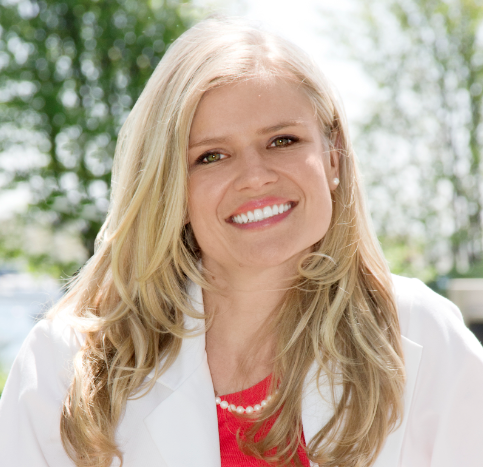
What is Naturopathic Medicine?
By Christine Davis
Navigating the world of complementary and alternative health can be confusing and daunting. It’s difficult to understand what different practitioners can offer and how they are trained. Unfortunately, this gap in education and awareness can lead many people to miss out on the care they want and need. I will start by breaking down the mystery that is Naturopathic Medicine.
The Premise:
Naturopathic Medicine is a primary health care system that integrates modern science with traditional, natural medical practices. The principal objective is to treat the underlying root cause of disease and to promote health and vitality as a preventative, lifelong goal. It is also a way to treat common health concerns in a gentle, natural manner.
The Training:
In Ontario, licensed Naturopathic Doctors have at least seven years of post-secondary education, graduate from an accredited educational institution, receive their professional licensing from the Board of Directors of Drugless Therapy-Naturopathy (BDDT-N), and complete and pass rigorous international licensing exams (NPLEX).
Naturopathic Guiding Principles:
The primary goal for a naturopathic doctor is to determine and treat the underlying cause of disease rather than simply managing the symptoms. The symptoms are viewed as expressions of the body’s natural attempt to heal and are important indicators of where the body needs to be supported rather than suppressed.
Naturopathic Doctors seek to treat the individual. Rather than treating only one organ or system, the naturopathic doctor treats the whole person. Your physical health, family history, nutritional status, lifestyle, environmental and emotional stresses are all carefully evaluated to devise a treatment plan that is unique to you.
The body has a remarkable ability to sustain and heal itself. Naturopathic doctors respect the power of the body to heal and seek to facilitate the body’s innate healing capacity. This may include removing obstacles to healing or using tools to strengthen and build up the body.
Naturopaths are trained in lifestyle medicine. By working with you, they can find a nutrition, exercise and lifestyle plan that elevates your health while fitting into your routine. By analyzing your diet, NDs are trained to address areas of deficiency and to find simple, sustainable ways to improve your energy and overall health.
As for treating the individual, naturopathic doctors look at your unique symptom pattern, identify health risks and devise a nutritional plan that matches your constitution. They can augment this by using targeted nutritional supplements to achieve better health.
Naturopathic Doctors have many other “Tools in their Toolbox.” These include: traditional Chinese medicine, acupuncture, herbal medicine, homeopathy, hydrotherapy, massage therapy and chiropractic manipulation. As well, most naturopaths participate in continuing education which may broaden their scope to include other therapies such as intravenous vitamin infusions, Bowen therapy, reiki, dark field microscopy and more.
A common question asked of naturopathic doctors is… what do naturopathic doctors treat? NDs are primary healthcare practitioners, and can treat the same conditions as a family doctor, including acute and chronic health conditions. In the event that an ND is unable to treat your condition, they will refer you to someone who can. Naturopathic Doctors often work on either end of the health spectrum. They are experts at helping those who are proactive and want to achieve optimal well-being by improving their diet and augmenting their health with targeted nutritional supplements and therapies such as acupuncture and hydrotherapy. Naturopathic Doctors also treat many individuals whom the conventional medical community is unable to assist (e.g. chronic disease cases). Naturopaths can be helpful in many different conditions; it is difficult to put them in a box. Instead, I will provide you with an example of how naturopathic medicine can help.
Meet Joe:
“Joe was having stomach difficulties. For years, Joe had experienced bloating, gas, diarrhea and abdominal cramping. After extensive medical investigation, his doctor diagnosed him with Irritable Bowel Syndrome (IBS). IBS is a diagnosis of exclusion, meaning that he doesn’t have any identifiable organic cause for the symptoms he is experiencing. As a last resort, Joe decided to visit a Naturopathic Doctor who looked at all of the testing he had already been through and performed an intake and physical exam. During the intake, Joe admitted that many of the symptoms originated when he was at university. Joe’s stress levels rose dramatically and his nutritional intake diminished. Upon further examination, it was determined that two factors were at play here. Joe was identified as having a milk allergy. All the pizza and ice cream he was consuming in residence was not helping. Secondly, Joe was experiencing a lot of stress, especially around his exam periods. By eliminating dairy, healing his gut, teaching Joe stress management techniques and using targeted nutritional supplements to improve his stress… Joe’s symptoms entirely disappeared. Joe was relieved and shocked that simple changes to his diet and lifestyle could make such impressive changes in the way he felt. Not only were his stomach symptoms resolved, he also slept better and had significantly more energy than he had previously.”
By looking at Joe as an individual, his Naturopathic Doctor was able to address the root cause of Joe’s problems. His symptoms were representative of a multifactorial problem, involving stress and diet. Given that everybody is unique, the diet and lifestyle strategies had to be catered to his unique constitution. Joe now understands why he is experiencing these symptoms and how to better manage them himself.
How does Naturopathic Medicine fit into my current healthcare?
Naturopathic doctors are considered primary care practitioners, meaning they can be a first contact in any health concern. However, I believe in integrative care, meaning Naturopathic Doctors can work with your team of healthcare practitioners to augment any treatment you may be receiving. For example, if you are working with a Medical Doctor, NDs can work with your MD to help achieve optimal health.
John has been diagnosed with high blood pressure. His medical doctor is recommending medication, but John wants to examine if there are other ways to improve his condition. By working with a Naturopathic Doctor, John has addressed his diet, exercise regime and stress concerns which were contributing to his high blood pressure. John’s Naturopathic Doctor was able to coordinate care with his Medical Doctor and slowly reduce his need for medication.
For more information on naturopathic medicine and how it can help you attain optimal health for life, visit the Canadian Association of Naturopathic Doctors (CAND): www.cand.ca; Naturopathic Doctors Ontario (NDO): www.ndontario.com; The Canadian College of Naturopathic Medicine (CCNM): www.ccnm.edu; The Board of Directors of Drugless Therapy – Naturopathy (BDDT-N): www.bddtn.on.ca










